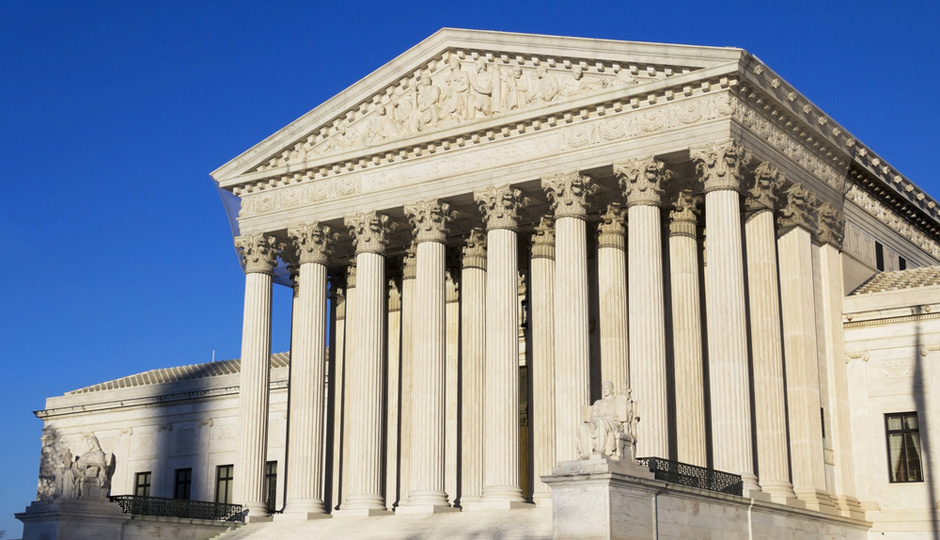BizFeed: Supreme Court Has One More Big Decision Left
1. Supreme Court Has One More Big Case Left to Decide
The News: After a historic week where the U.S. Supreme Court effectively upheld Obamacare in its current form and made gay marriage legal in all 50 states, it has one more big case left to decide.
The case is Utility Air Regulatory Group v. EPA. At issue is whether the Environmental Protection Agency refused to consider costs when regulating electric power plant emissions. Is it fair to make utilities spend billions to remove mercury and other toxins from their emissions? (Conservatives argue that it’s a big ask for only small amounts of mercury.)
The Wall Street Journal has more: “The regulations would cost $9.6 billion in annual costs, according to EPA estimates. But the agency said it was appropriate to consider only public health risks—not industry costs—when it decided to regulate coal- and oil-fired generation plants.”
Forbes forecasts what we can expect from the justices: “Liberals Stephen Breyer, Ruth Bader Ginsburg and Sonia Sotomayor seemed content to let the EPA regulate as it sees fit under the well-settled Chevron doctrine granting federal agencies wide leeway to interpret how to implement complex laws. Justice Antonin Scalia, on the other side, repeatedly attacked the EPA’s mercury standards as violating the rules implied by the terms “appropriate and necessary” that Congress added to the law. He agreed with the state of Michigan and coal and utility interests that “appropriate” would be repetitive and meaningless if it didn’t encompass other considerations like cost.”
Why It Matters: The emissions standards are a key part of President Barack Obama‘s environmental agenda and would re-shape how utilities across the country will be forced to handle the toxins they release. The rules went into effect this spring.
The WSJ explains the implication of the new rules: “They require plants to install high-tech scrubbers to remove the pollutants. Many companies have already moved to install the controls. The EPA said such plants are the single largest source of U.S. emissions of mercury, a neurotoxin that can be particularly harmful to children and unborn babies.”
2. SpaceX Rocket Explodes
The News: An unmanned rocket from Elon Musk‘s SpaceX company disintegrated upon launch on Saturday at the Cape Canaveral Air Force Station in Florida. It was carrying food, water and equipment. The Wharton grad and Tesla founder tweeted the following:
Falcon 9 experienced a problem shortly before first stage shutdown. Will provide more info as soon as we review the data.
— Elon Musk (@elonmusk) June 28, 2015
That's all we can say with confidence right now. Will have more to say following a thorough fault tree analysis.
— Elon Musk (@elonmusk) June 28, 2015
Why It Matters: It’s the third cargo ship destined for the International Space Station to crash in eight months. “In October, an Antares cargo rocket, built by Orbital ATK, exploded on the launching pad in Virginia. In April, a Russian Progress cargo rocket spun out of control, and was unable to reach the space station,” the New York Times reported.
For SpaceX, it’s a huge blow. The company was hoping to be the first to launch and land a reusable rocket, says Business Insider. But the company plans to press on. “Despite the loss, SpaceX says it will still be ready for its first human-manned Dragon rocket flight, which the company maintains will launch in 2017,” Business Insider said. “During Sunday’s press conference, officials said that they don’t expect the crash to delay plans for manned SpaceX flights, and claimed that the explosion will help scientists and engineers identify problems.”
3. Airbnb Has a High-End Rival
The News: Airbnb — the service the allows you to rent private homes by the night rather than stay at hotels — has a shiny new rival. It’s called Onefinestay, and the company just got $40 million in funding from the likes of Intel Capital, Quadrant Capital, Index Ventures and even Hyatt Hotels, according to TechCrunch.
Why It Matters: Airbnb is doing serious harm to the traditional hotel industry and additional rivals will shake up the industry even more. After all, a rising tide lifts all ships. With Hyatt on board as a funder for Onefinestay, it’s giving even more legitimacy to the new wave of traveling.
TechCrunch explains: “The rationale behind Hyatt investing in Onefinestay works on a few different levels. There is very basic possibility that this is simply about an incumbent knowing his enemy, and for Onefinestay a case of “better the devil you know.”
“But it sounds like this could help both companies’ businesses, too. For Hyatt, there will potentially be a lot of travelers who might be part of its target affluent demographic who are actually looking for places to stay that are either less sterile, or simply equipped with options like kitchens that are harder to come by in hotels. Investing in a company that offers private but high-end homes, and potentially marketing those properties through its booking services, would mean that Hyatt has a better chance of holding on to its most loyal customers.”



